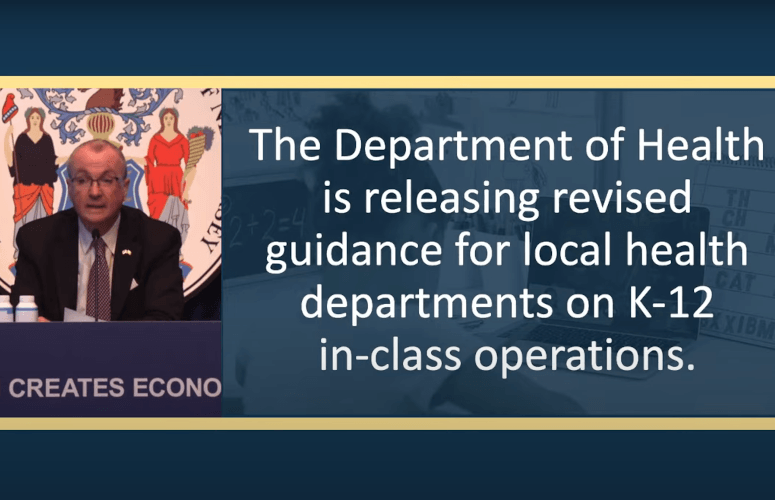
Healthcare Faces Post-Pandemic Workforce Challenges – and Opportunities
On Apr 11, 2022The pandemic is having a transformative impact on business operations, from supply chain, to leasing and real estate, to recruiting and retaining talent. For healthcare providers – equal parts essential social services and major employers – the workforce impacts of COVID-19 present unprecedented challenges.
However, the challenges also bring opportunities. The New Jersey Hospital Association, along with its nearly 400 members, is focused on both short- and long-term solutions to support today’s healthcare workers while building the pipeline of caregivers for the future.
Cyclical Staffing Challenges
Healthcare has cycled through workforce shortages for decades. History shows that the growth in hospital use in the 1930s, coupled with efforts to reduce the number of working hours demanded of nurses, led to one of the nation’s first nursing shortages. The demand for nurses and other healthcare professionals continued to outpace supply throughout World War II and the post-war years. That era ushered in the employment of aides to support registered nurses; these “nurse extenders” remain an important part of the healthcare team today.
By the 1970s and 1980s, shortages returned, and hospitals began to look abroad to the Philippines and other nations for nurses. Reporting on the region’s nursing shortage in December 1974, The New York Times also described the trend of traveler nurses working stints of six months or so before moving on to another opportunity. NJHA launched its own initiative to create an Ireland-to-New Jersey pipeline for nurses in the late 1980s, sending nurse recruiters to job fairs and nursing schools in Ireland and giving Irish nurses assistance and financial support for travel, housing and completing the licensure process in New Jersey.
The cycle continued into the 2000s, with hospital nurse vacancy rates in New Jersey reaching 13% in 2002, prompting NJHA to operate a Center for Nursing and Health Careers, which worked to promote opportunities in health careers, increase access to education, and engage nurses in discussions about the work environment.
Despite various efforts over the decades, the past could be a prologue of what’s to come. Demand for healthcare services is growing as the Baby Boomer generation ages, and New Jersey’s nursing workforce is aging as well. A 2017 report from the U.S. Health Resources and Services Administration projects that New Jersey will have a shortfall of 11,400 registered nurses in 2030, the third largest gap in the nation behind only California and Texas.
“Workforce shortages have been a longstanding challenge for our industry, but one that has been pushed to the edge of crisis in this pandemic,” says AtlantiCare President and CEO Lori Herndon, a nurse for more than 40 years and the hospital association’s Board chair for 2022.
The Pandemic’s Impact
The “Great Resignation” instigated by the pandemic has upended staffing and hiring in almost every sector, including healthcare.
“No profession has been more essential in this pandemic, and more challenged, than nurses and other bedside professionals,” says NJHA President and CEO Cathy Bennett. “The staff burnout and fatigue are nationwide problems that have particularly exacerbated New Jersey’s longstanding healthcare workforce shortage.”
In February 2022, an NJHA survey of the state’s hospitals revealed rising staff vacancy rates even as hospitals tripled their spending on supplemental staffing from traveler and agency nurses. Based on responses from 70% of the state’s hospitals, the report Healthcare Employers in Dire Need of an Expanded Workforce Pipeline shows that:
For registered nurses, the vacancy rate increased 64%, from 8.2% in 2020 to 13.4% in 2021. The vacancy rate measures the number of unfilled positions relative to the total number of employees.
The vacancy rate for nurse extenders (which include positions such as certified nurse aides) increased 37%, from 12.4% in 2020 to 16.9% in 2021.
The reliance on agency registered nurses increased 66%, from 3.6% in 2020 to 6.0% in 2021.
For nurse extenders, the reliance on agency staff increased 68%, from 2.9% in 2020 to 4.9% in 2021.
Hospitals spent approximately $499 million for overtime in 2020 and are projected to have spent approximately $592 million in 2021.
Hospitals spent approximately $222 million for agency and traveler staff in 2020 and are projected to have spent more than three times that amount – $670 million – in 2021. This represents an increase of 202% in just 12 months.
Those numbers reflect the impact of COVID-19’s historic disruption that is reshaping the workforce and the workplace. While the pandemic prompted large shifts to remote work, including telemedicine, the majority of essential healthcare services requires in-person performance. Unlike earlier shortages when healthcare providers could recruit staff from other areas, COVID-19’s worldwide impact has created a global competition for staff.
Not only has there been increased demand for clinical care providers, but the pandemic has also had a universally negative effect on the available workforce in general. While other industries may not offer the satisfaction of caring for others and saving lives, they are competing with healthcare in flexibility, remote work, strong wages, benefits packages and incentives to attract workers.
Stopgaps and Solutions
Short-term relief has come in the form of waivers, executive orders and legislation that provide hospitals, nursing homes and other providers added options and relief as New Jersey continues to confront the public health emergency. Gov. Murphy’s Executive Orders 280 and 281, for example, include provisions such as reciprocity in recognizing the licensure of out-of-state certified nurse aides (CNAs); allowing CNAs with expired certifications to continue working during and immediately after the public health emergency; and extending the expiration dates for CNA’s required certifications.
The Legislature, meanwhile, has enacted measures such as temporary emergency licensure for healthcare professionals licensed in other states and allowing recent nursing graduates who have not yet received their licenses to work in NJ hospitals under the supervision of experienced nurses.
These efforts alone have not met the demand for healthcare workers in New Jersey. To maintain quality care and ensure that healthcare teams have sufficient staff surrounding them, hospitals have turned to traveler and agency nurses. However, healthcare leaders are the first to admit it’s not a sustainable solution.
“To continue to save lives throughout this pandemic, our providers have been forced to rely on staffing agencies to fill the gaps – often at more than double and triple the rates of prior years,” Bennett says. “A nationwide problem demands a national solution. In the short term, that should include oversight of these staffing agencies to ensure that their high rates are actually benefiting the healthcare staff, versus being kept in profits.”
The future demands a more coordinated, strategic approach across multiple sectors, most notably education, to keep professionals in these critically important jobs. It also requires recognition of rapid changes in the skills needed by healthcare workers at all levels due to new technology and new healthcare delivery priorities. Areas in need of investment and innovation include assessing and implementing curriculum changes, opening more education slots for students interested in healthcare, increasing healthcare faculty, recruiting healthcare workers from disadvantaged communities, creating experiential learning opportunities and creating pathways so that healthcare is recognized among diverse groups for its meaningful, stable employment opportunities.
In addition, workforce solutions must address resiliency and wellness, opportunities for current staff to enrich their skills and education, and an investment in recruitment and marketing.
“This pandemic has placed an unfathomable burden on our healthcare facilities and their employees,” Bennett says. “We must begin now – in coordinated and transformative ways – to build the infrastructure that supports these professionals and creates a pipeline of skilled caregivers for generations to come.”
To access more business news, visit NJB News Now.
Related Articles:





